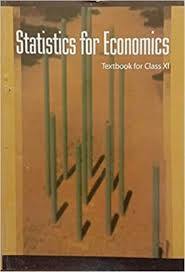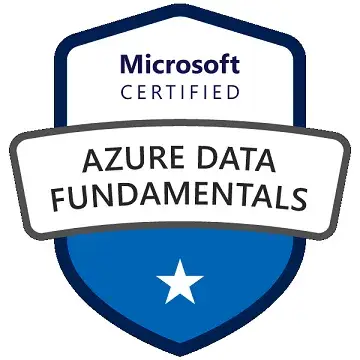Social Science Class 10
-
- 5 rating
- (1 Reviews)
- 0 students enrolled
Social Science Class 10
Class 10 Social Science is a subject typically taught in many educational systems around the world. It encompasses a diverse range of topics related to society, history, geography, politics, and economics, designed to provide students with a broad understanding of the social sciences.
-
- 5 rating
- (1 Reviews)
- 0 students enrolled
What learn
- Comprehensive Subject Knowledge
- Visual and Interactive Education
- Adaptive Learning Methodology
- 24/7 Availability
Course Content
Requirements
- Smart Phone Or Laptop with Internet Connection
Description
Here are short details about each of the chapters or topics you've listed:
1. **Gender, Religion, and Caste:** Likely discusses the social aspects of gender, religion, and caste in various societies, exploring their roles, impacts, and interconnections.
2. **Twentieth Century Age of Conflict - United Nations Organization:** Covers the establishment and functions of the United Nations as a global organization aimed at promoting peace and international cooperation.
3. **The Northern Plain Region - Western Punjab, Haryana:** Examines the geographical features, agriculture, and culture of the northern plain region in India, including the states of Punjab and Haryana.
4. **Water Resources:** Discusses the importance of water resources, their management, and issues related to water scarcity and conservation.
5. **Practical Geography:** Likely focuses on practical skills in geography, such as map reading, fieldwork, and data analysis.
6. **Resources:** Discusses the various natural and human resources essential for economic development.
7. **World After Second World War III:** Examines the global political, economic, and social changes that occurred after World War II.
8. **The Indian Economy:** Likely covers the economic structure, sectors, and growth of the Indian economy.
9. **World After Second World War I:** Further explores the post-World War II global developments and their impact.
10. **Manufacturing Industries:** Discusses the manufacturing sector, industrialization, and the role of industries in economic growth.
11. **Minerals and Energy Resources:** Covers the extraction and utilization of minerals and energy sources.
12. **The Age of Industrialization:** Examines the historical period of industrial growth and its consequences.
13. **Sectors of the Indian Economy:** Likely focuses on the primary, secondary, and tertiary sectors of the Indian economy.
14. **Consumer Rights:** Discusses the rights and protections of consumers in various markets.
15. **The Peninsular Plateau Region - Deccan:** Explores the geography and features of the Deccan Plateau region in India.
16. **Twentieth Century Age of Conflict - First World War:** Examines the causes, events, and consequences of World War I.
17. **Emancipation of Africa:** Covers the struggle for independence and freedom in African nations.
18. **Globalization:** Discusses the concept of globalization, its impacts on economies and cultures, and its challenges.
19. **Twentieth Century Age of Conflict - League of Nations:** Focuses on the League of Nations and its role in international relations during the 20th century.
20. **The Physical Division of India:** Likely explains the geographic divisions within India based on physical features.
21. **Agriculture:** Covers various aspects of agriculture, including farming practices and challenges in different regions.
22. **Development:** Explores the concept of development, its indicators, and disparities among nations.
23. **Imperialism - Geographical Discoveries and Imperialism:** Examines the age of imperialism, including the geographical discoveries that led to colonization.
24. **Nationalism in India:** Discusses the Indian nationalist movement against British colonial rule.
25. **Inflation:** Explores the causes, effects, and management of inflation in economies.
26. **Print Culture and the Modern World:** Examines the impact of print media on culture, information dissemination, and social change.
27. **Resources and Development:** Discusses the sustainable use of resources for balanced development.
28. **Life Lines of National Economy:** Likely covers transportation and communication networks vital for economic activities.
29. **Imperialism - Africa:** Explores European colonization and imperialism in Africa.
30. **Political Parties:** Discusses the role and functioning of political parties in democratic systems.
31. **The Northern Plain Region - Central, Delta, and Eastern:** Further explores the geography, agriculture, and culture of the northern plain region in India.
32. **Challenges to Democracy:** Examines the challenges faced by democratic systems worldwide.
33. **Democracy and Diversity:** Discusses the role of diversity in democratic societies.
34. **Democracy:** Explores the principles and functioning of democratic governments.
35. **The Peninsular Plateau Region - Central Highlands:** Provides insights into the geography and features of the central highlands in the Indian peninsular plateau.
36. **The Northern Mountain Region I:** Likely covers the geography and characteristics of the northern mountainous regions in India.
37. **Emancipation of Asia:** Examines the liberation movements and decolonization in Asian countries.
38. **Twentieth Century Age of Conflict - Russian Revolution:** Discusses the Russian Revolution and its impact on world history.
39. **Output:** May refer to economic output or production levels in various sectors.
40. **The Rise of Nationalism in Europe:** Explores the emergence of nationalism in Europe during the 19th and 20th centuries.
41. **Outcomes of Democracy:** Discusses the positive and negative outcomes of democratic governance.
Recent Courses
- June, 23rd 2025
- 3
This course plan outlines a comprehensive curriculum for a prompt engineering course, designed to equip learners with the ski..
- 1699.00₹
2000.00₹
- June, 28th 2025
- 12
In an era where technology is seamlessly integrated into our daily lives, understanding the synergy between Embedded Systems..
- 1599.00₹
2000.00₹
- May, 22nd 2024
- 0
Microeconomics is an essential component of economics as a whole, as it helps us understand how individual decisions and inte..
- 799.00₹
999.00₹
About Instructor







.png)


